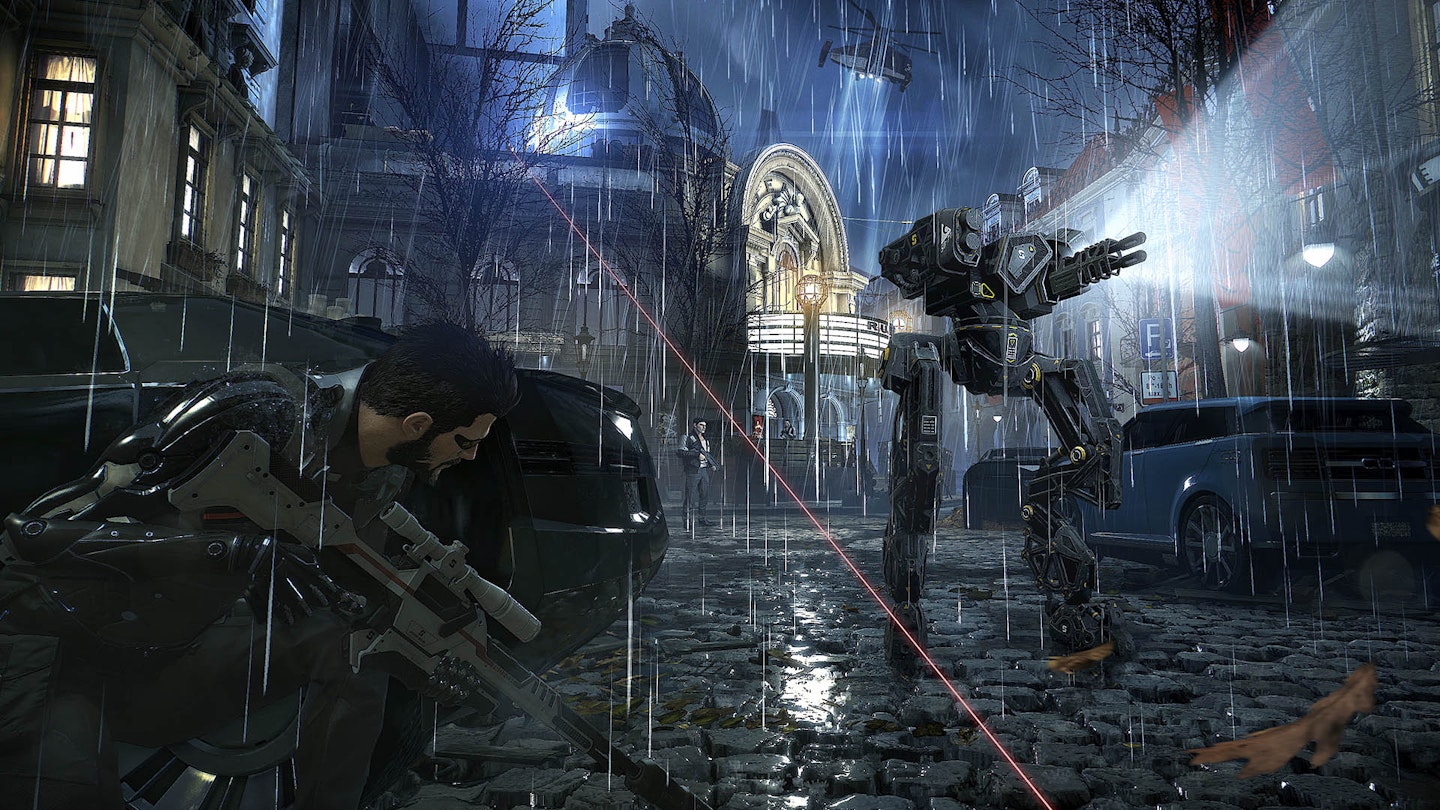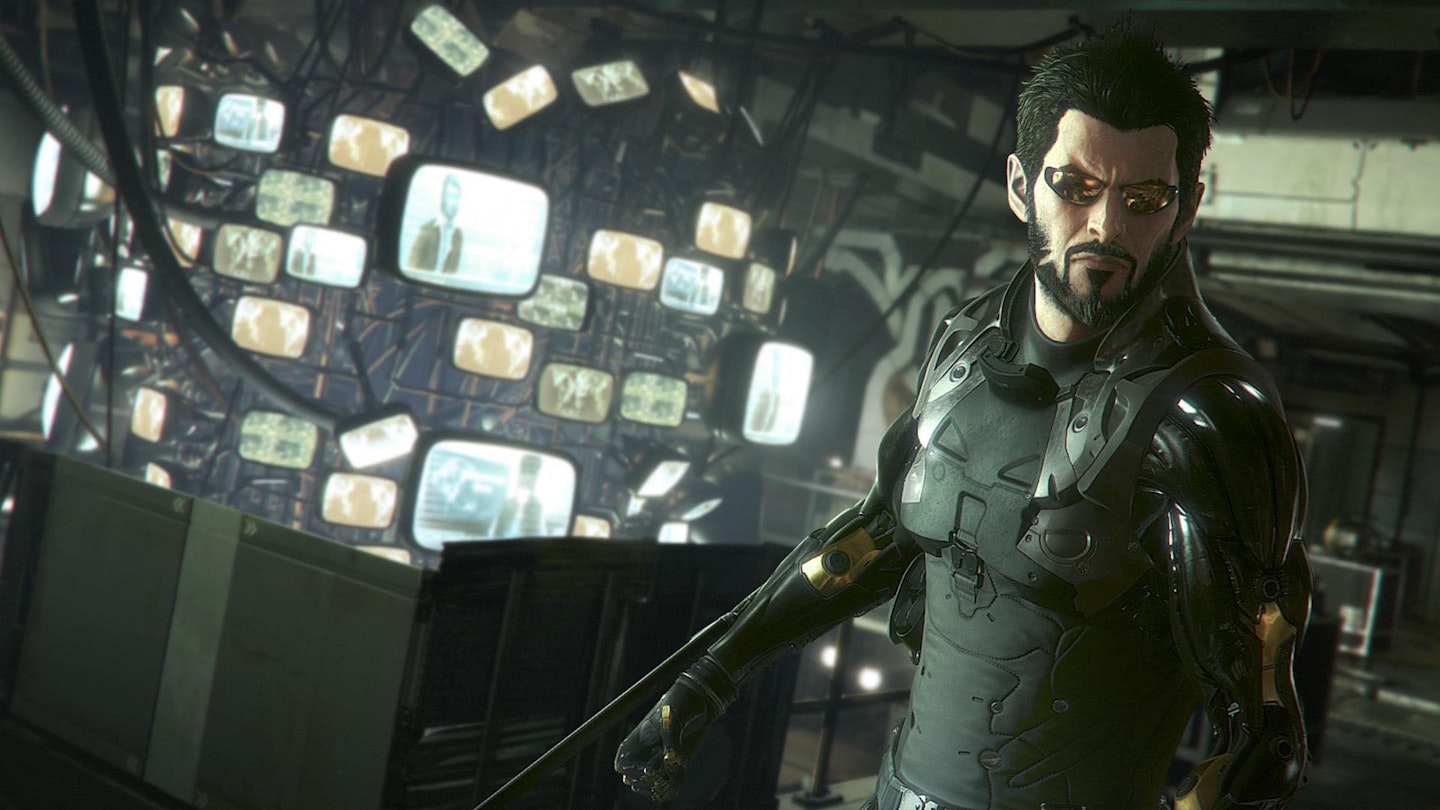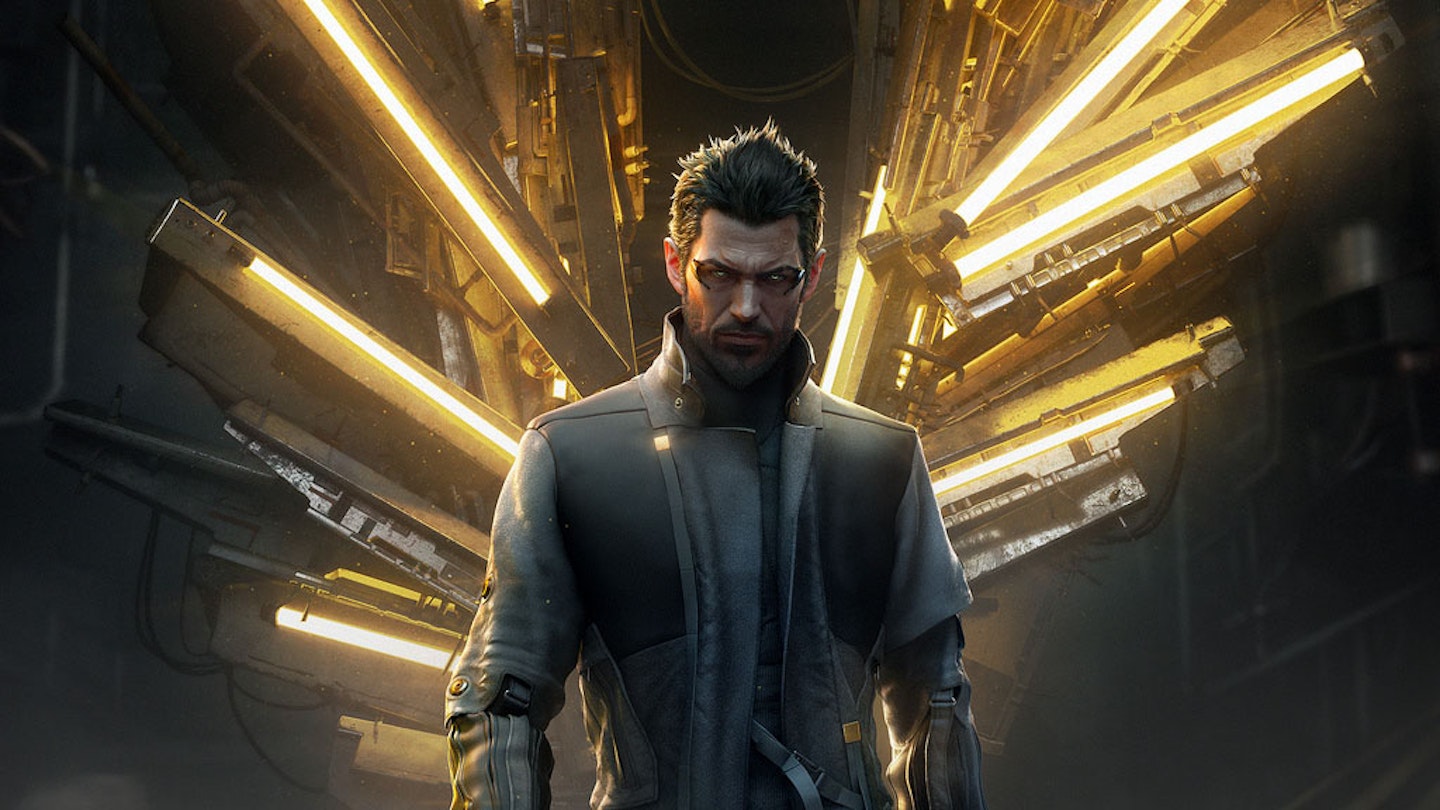If you prefer games to be intelligent and thought-provoking, there’s a good chance that you’ve been eagerly awaiting Deus Ex: Mankind Divided’s arrival. And if you’ve played a Deus Ex game before, you won’t be disappointed by Mankind Divided. It picks up where 2011’s Deus Ex: Human Revolution left off, providing a deep, intricate narrative allied to fine stealth-action gameplay that lets you choose your approach. It looks very stylish indeed (as it should, being the first Deus Ex game for the current generation of consoles) and feels much less single-path than its predecessor.
If you crave games that rise above the default level of mindless action, it should be right up your alley.
Story-wise, Mankind Divided begins with a narrative change-up, in which you learn that two years previously – in 2027, just after the events chronicle in Human Revolution – a sort of computer virus was unleashed which temporarily tipped the world’s augmented humans (known as augs) into a frenzy. That frenzy resulted in the deaths of vast numbers of non-augmented humans, triggering a form of “mechanical apartheid” in which augs are looked on with suspicion and even herded into ghettoes. As in Human Revolution, you play the aug Adam Jensen, although now he is working for Task Force 29, a military wing of Interpol tasked with combating terrorism.

Jensen is now living in a cleverly realised future-Prague, which has a wonderfully paranoid and brittle feel to it thanks to the presence of large amounts of military-style police on the streets, widespread security and rampant gangster organisations. After an operation in Dubai which fails to proceed as planned, and a bomb in Prague station which Jensen narrowly escapes, a multi-layered narrative emerges in which Jensen questions the integrity of his bosses and becomes entangled with a hacker organisation called the Juggernaut Collective, an Illuminati-style organisation appears to be pulling all the strings and a machine-revering religion also features. Plus you find meditations on big business usurping the power of governments. Mankind Divided is catnip for conspiracy theorists.
Gameplay-wise, Mankind Divided wisely refrains from much deviation from the blueprint set by Human Revolution, although the control system has been tinkered with slightly to accommodate an improved stealth mechanism, which lets you hop from cover to cover with a single button-press. An early story-twist leads Jensen to discover that he has some new augmentations, including one which lets him effectively teleport over short distances, much like Dishonored’s Blink move, and a force-field that knocks enemies over; old favourites like his invisible camouflage are present and correct. At first, it’s a bit frustrating as his augmentations eat up a lot of energy and consequently don’t last very long, but once you start completing missions, earning Praxis points with which to upgrade him and his weaponry, and you get to grips with the excellent crafting system, you soon build him up into an operative with the set of superhuman skills to suit your play-style.
One feature of Mankind Divided is a superb set of side-missions, which manage to be much more memorable than is the norm in games when you stray from the main storyline. And there’s an intriguing new mode called Breach, which expands on the hacking side of the game (still prevalent in Mankind Divided, and more or less unchanged from Human Revolution), putting you at the controls of a VR-style avatar, hacking into the data-vaults of a particular bank. With garish, Tron-style visuals, Breach comes across like a simplified, arcade-style version of the main game, and is pretty diverting although not something that would justify buying the game on its own.

Mankind Divided has a few areas in which it isn’t entirely satisfying, however. While Prague is a great hub, rammed with hidden areas and side-missions and Golem, the aug-ghetto, also constitutes a decent hub, the game isn’t as open-world as it initially promises to be. Nor is it quite as long as its initial stages suggest it will be, although it does provide over 20 hours’ gameplay. You have to work hard with upgrades and the like to elevate the weaponry to a level at which it is truly useful. And while the storyline is wonderfully convoluted, especially if you explore all the side-missions, it fizzles out disappointingly towards the end, wrapping everything up in a bit of a rush.
Those criticisms might prevent Deus Ex: Mankind Divided from going down in the annals as a truly great game, but there’s no doubt that it’s a very, very good one. It postulates a marvellously believable dystopian future-world, depicted with bags of style and character, and as a Deus Ex game should, gives you the impression that you have played through it your way, rather than pandering to the diktats of its gameplay. If you crave games that rise above the default level of mindless action, it should be right up your alley.
